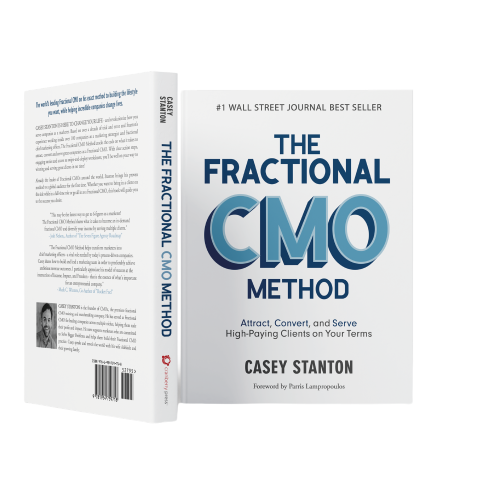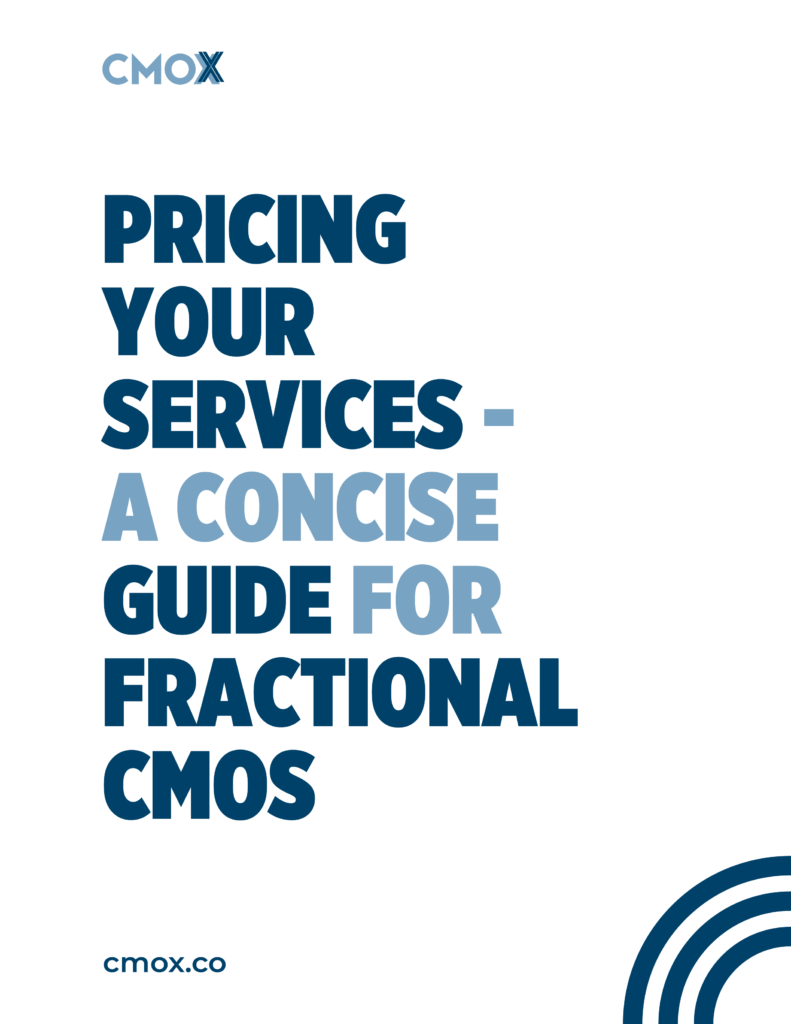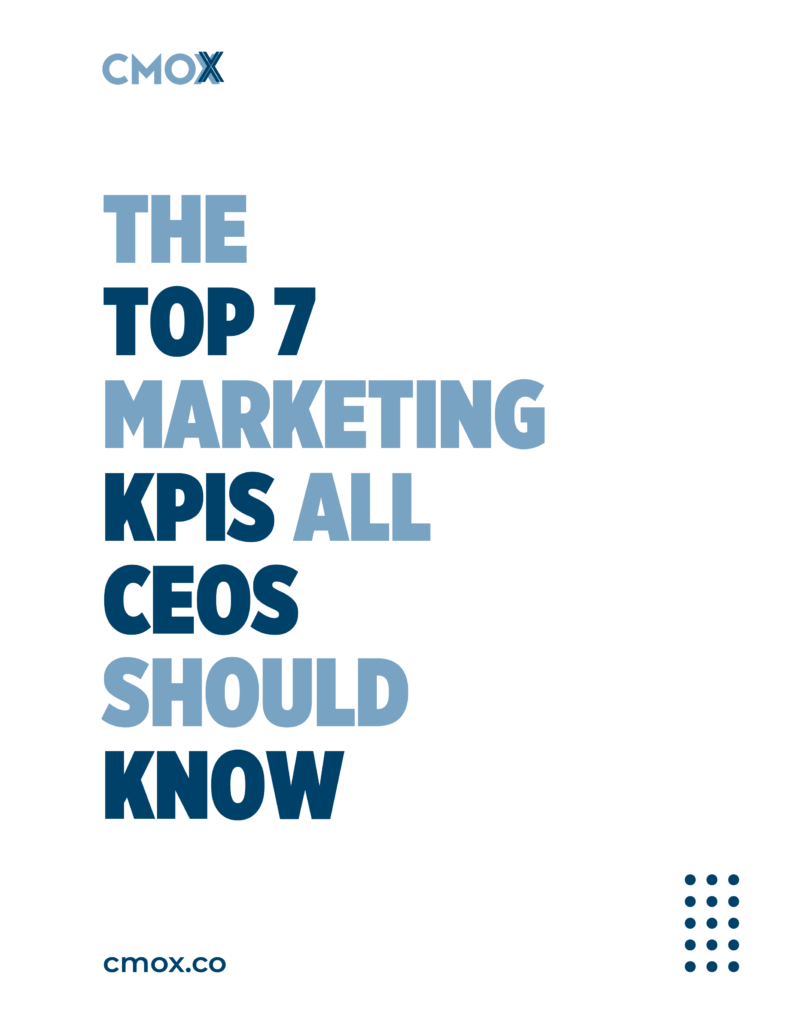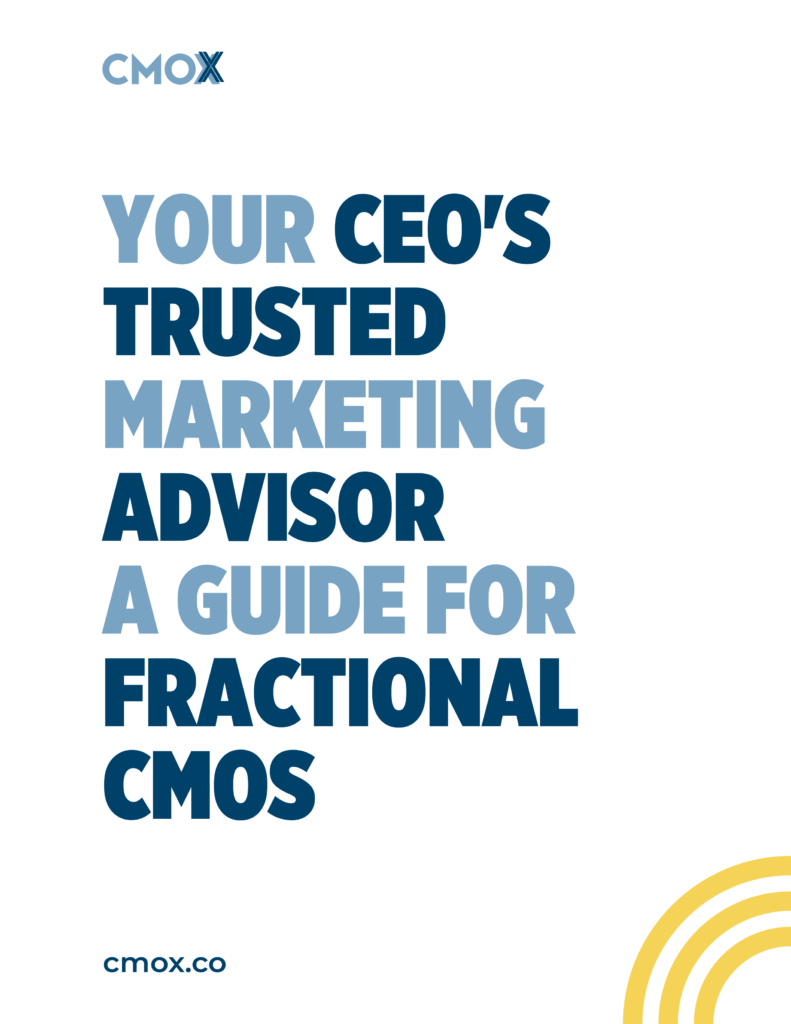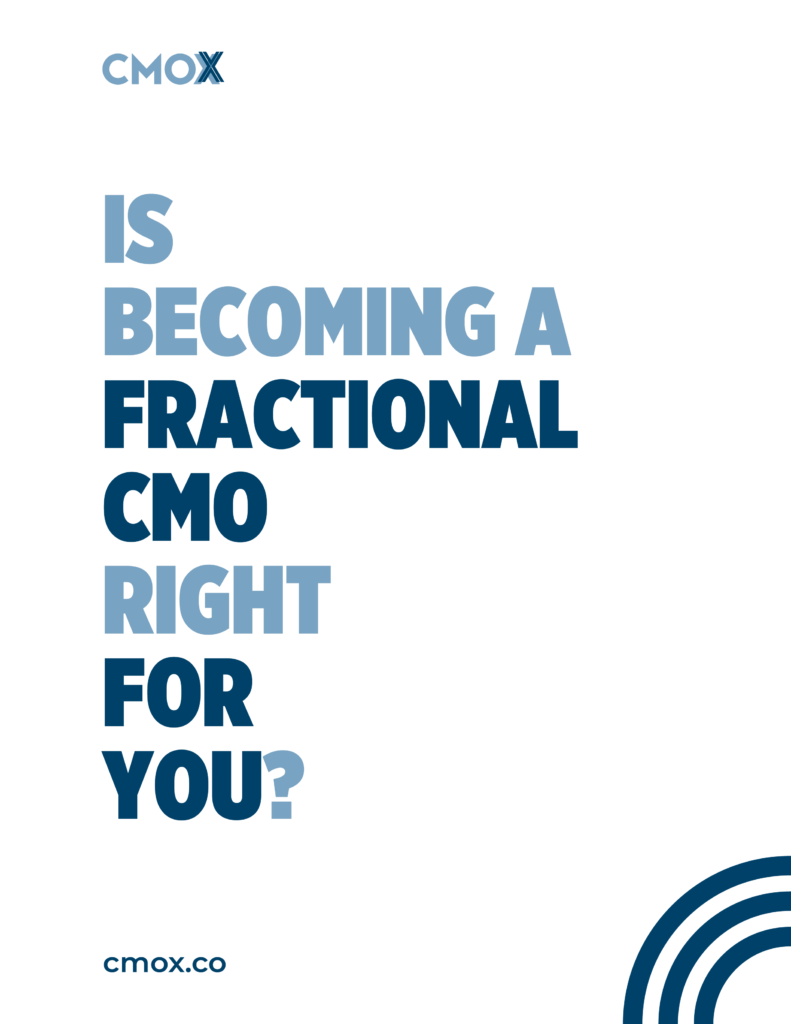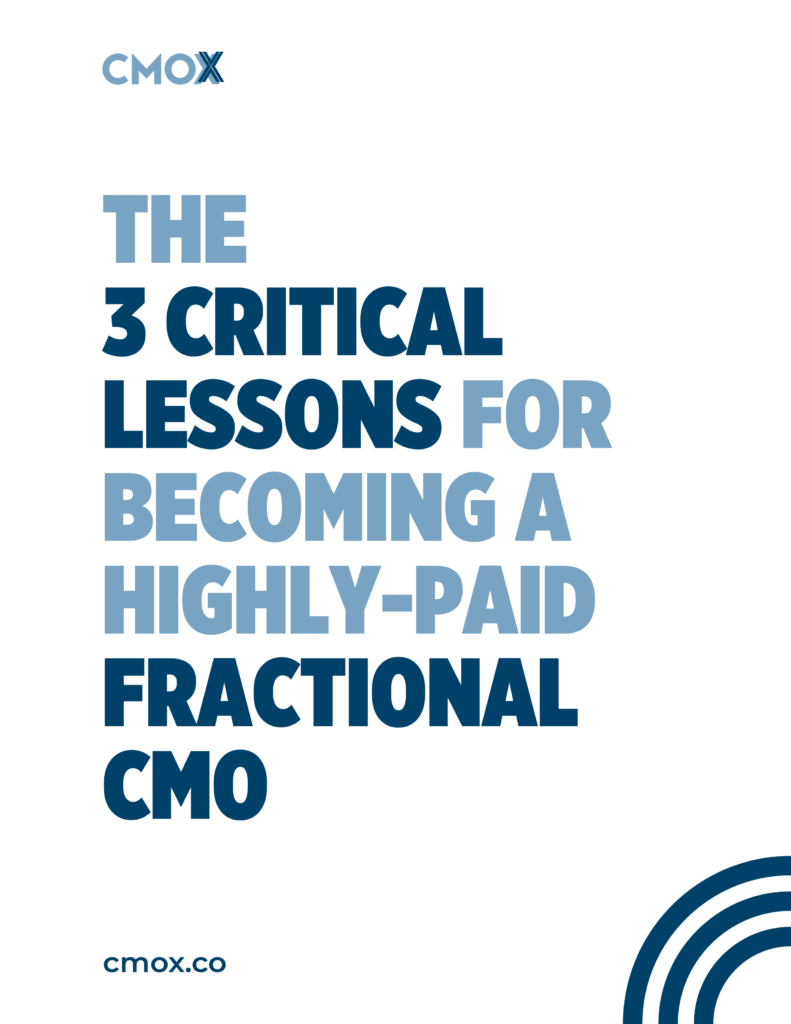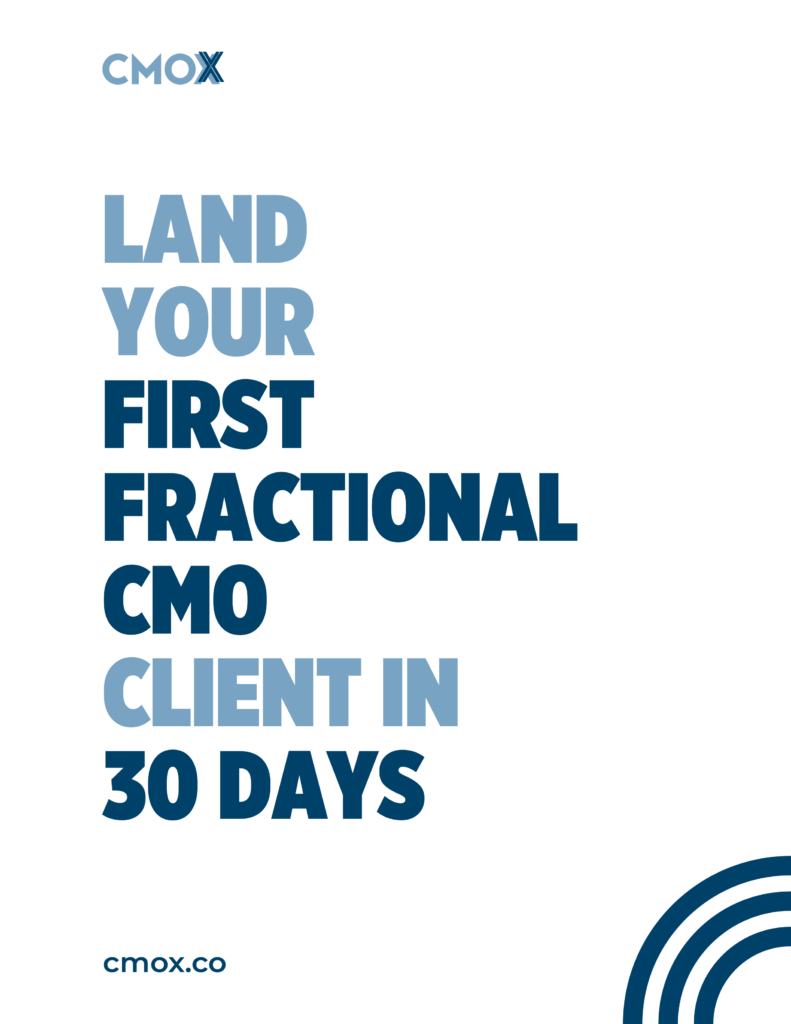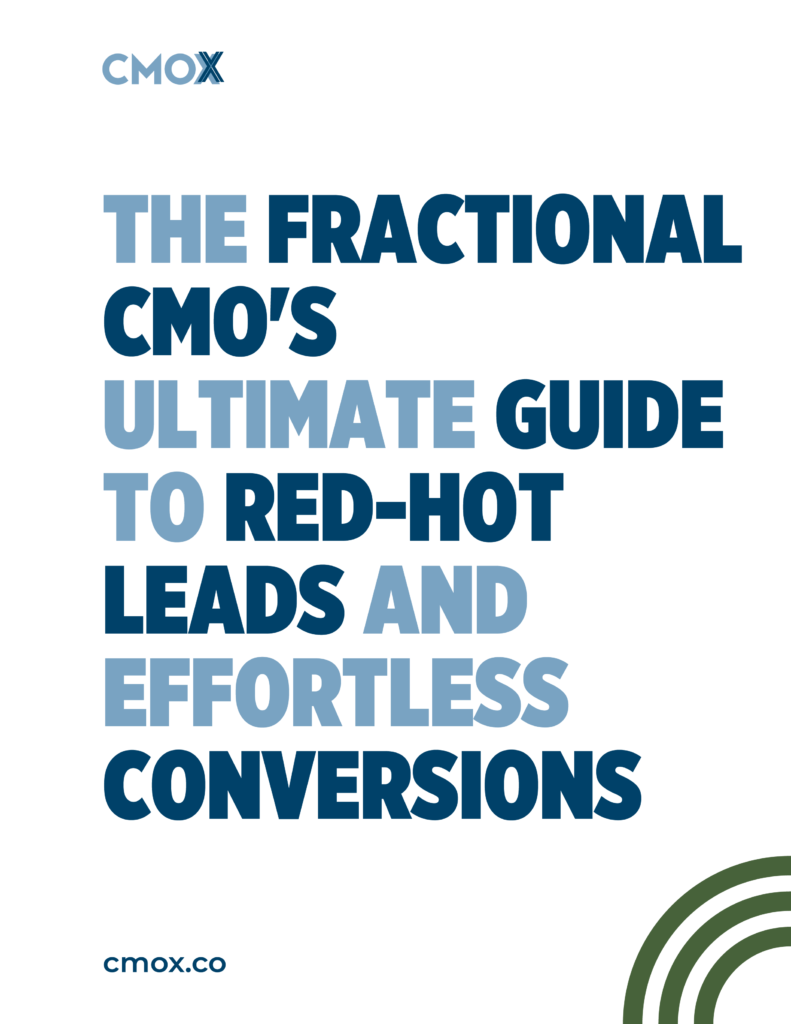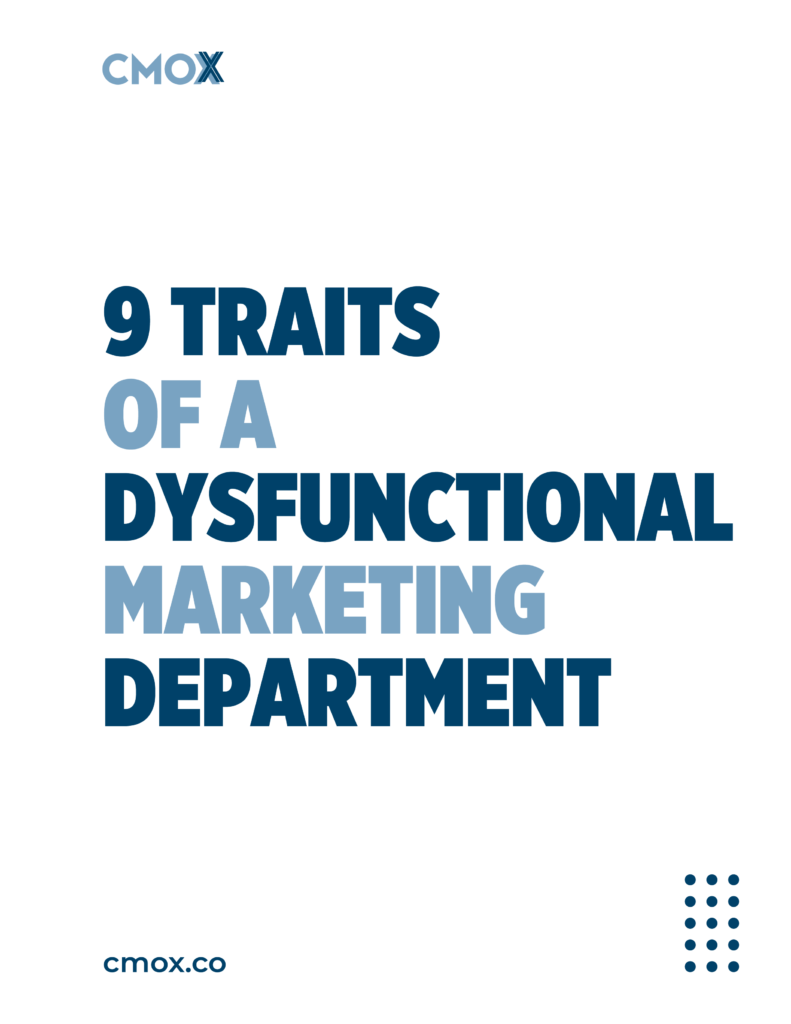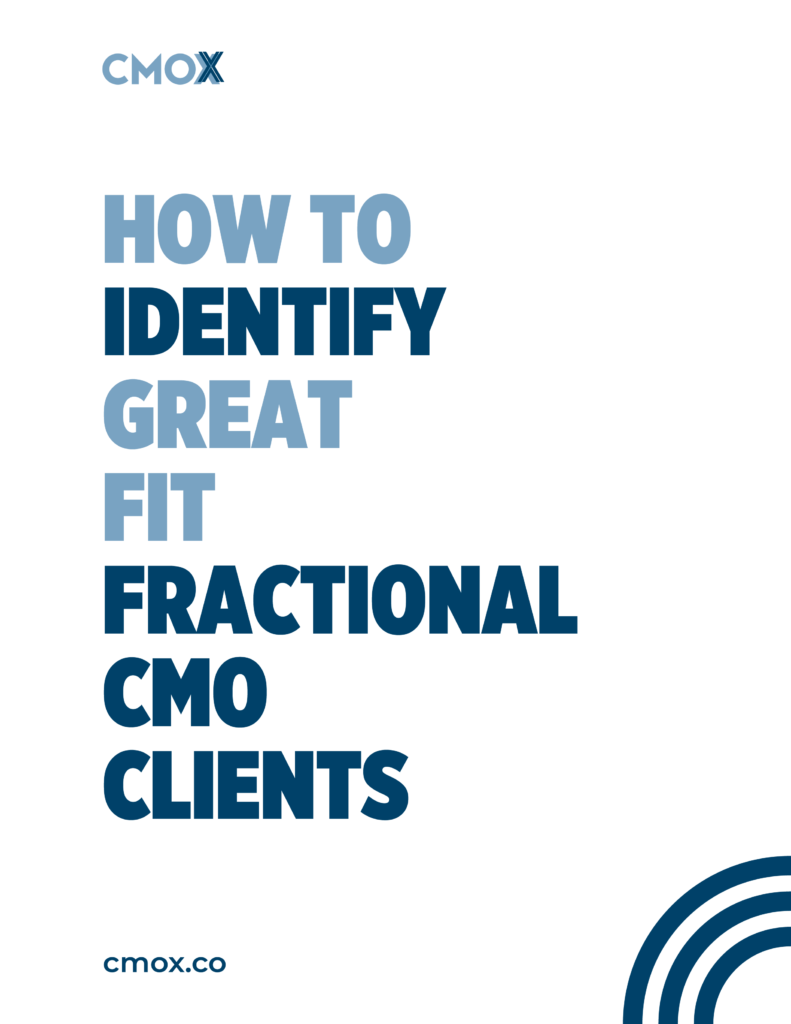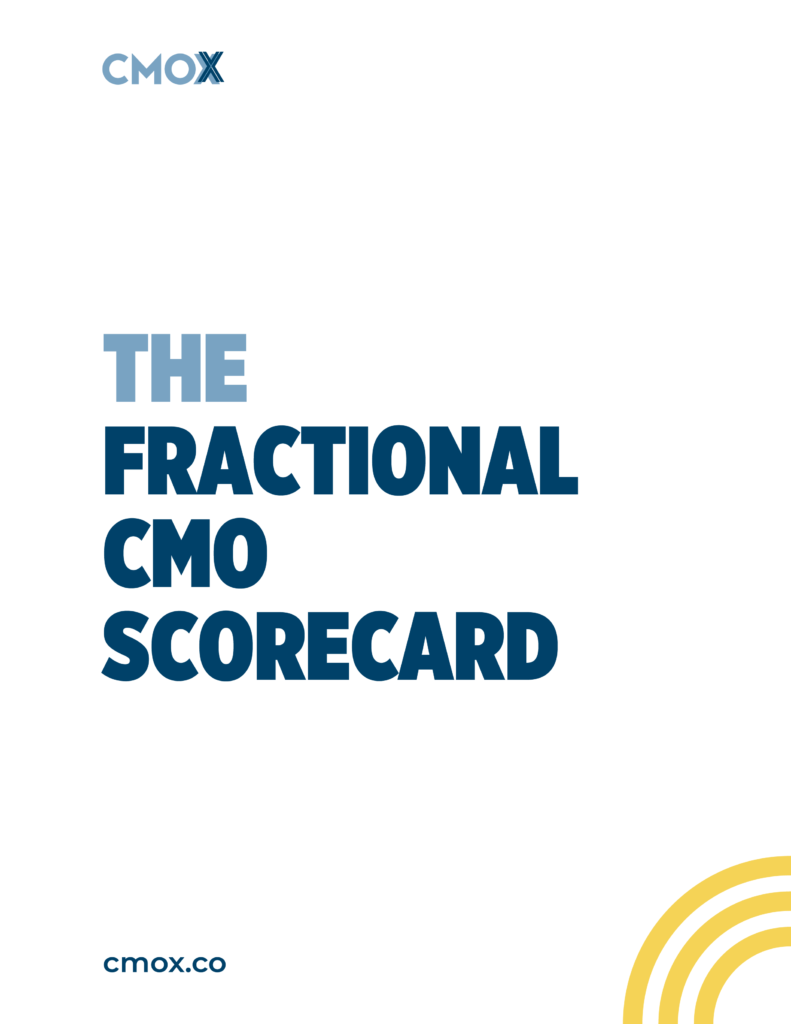“Delegate Everything Except Leadership” Series: Part 3 – CMOs
In the fast-paced world of business marketing, the pressure on Chief Marketing Officers (CMOs) is significant. Knowing how & when to delegate marketing tasks is crucial to leading a marketing team effectively.
CMOs are tasked with dominating the ever-evolving marketing landscape, ensuring their company stays ahead of the curve. The sheer volume and intricacy of marketing campaigns can overwhelm even the most seasoned CMOs. The weight of trying to do it all alone can lead to burnout, stagnation, and missed opportunities.
By mastering the art of delegation, CMOs can transform their workload from a crushing burden into a strategic advantage. Delegating marketing tasks allows CMOs to focus on what truly matters – driving innovation, shaping marketing strategy, and inspiring their team to greatness. In this blog, we’ll unravel the mysteries of successful delegation, equipping CMOs with the tools and strategies they need to thrive in their roles.
If you’re looking to further your career in marketing, CMOx’s CMO Accelerator program gives you the tools you need to succeed as a fractional marketing executive.
The Importance of Delegating Marketing Tasks
By entrusting specialized tasks and marketing efforts to skilled team members, CMOs can channel their energy into duties that drive real impact. Imagine a CMO who no longer spends hours analyzing data or crafting social media posts but instead focuses on shaping the company’s long-term vision and fostering innovation. Delegating tasks isn’t about lightening the workload; it’s about unlocking the team’s full potential and fostering a culture of empowerment and collaboration that leads to superior results for the organization as a whole.
Effective task delegation is a cornerstone of success for both full-time and fractional CMOs. For full-time CMOs deeply entrenched within the company’s culture, delegation leverages their intimate business knowledge to tailor strategies that maximize efficiency and results. Fractional CMOs, often parachuting into organizations on a part-time basis, face the challenge of quickly understanding the company’s objectives and culture to delegate tasks effectively.
Marketing Task Delegation as a Full-Time Vs. Fractional CMO
In today’s business world, CMOs must be strategic in their approach to task delegation. By leveraging their intimate understanding of the company, full-time CMOs craft delegation strategies that align seamlessly with overarching objectives, ensuring delegated tasks have maximum impact. Conversely, for fractional CMOs operating part-time, clear communication and trust-building become essential tools. This enables them to align their efforts with company goals and drive meaningful results despite their limited time commitment.
A specific challenge for fractional CMOs is establishing credibility and trust within the team and across the organization. Since they may not have the same level of visibility or authority as full-time executives, fractional CMOs must work harder to build relationships and earn the trust of their colleagues. Additionally, fractional CMOs may face resistance or skepticism from team members accustomed to working with full-time executives. Overcoming this hurdle requires demonstrating competence, professionalism, and a clear understanding of the organization’s goals and challenges.
Understanding Which Tasks to Delegate as the CMO
CMOs must embark on a journey of self-awareness, recognizing their core competencies and areas where they can truly add value. By identifying their strengths, CMOs can delineate tasks that align with their expertise and leadership style, ensuring that their time and energy are invested where they can make the most significant impact. This process involves a delicate balance of introspection and pragmatism, as CMOs weigh the benefits of retaining certain responsibilities against the potential gains of delegating to capable team members.
Routine operational tasks such as social media management, content creation, and data analysis are prime candidates for delegation, freeing up valuable time and mental bandwidth for CMOs to focus on strategic initiatives that demand their unique expertise and leadership. By mastering the art of task delegation, CMOs can unlock the full potential of their team, foster a culture of collaboration and innovation, and drive sustainable growth and success for their organization.
“Delegate Everything Except Leadership” for CMOs
CMOx’s mantra, “delegate everything except leadership,” epitomizes the essence of effective task delegation for CMOs. This approach emphasizes that while CMOs delegate operational tasks to their team members, they are responsible for guiding and inspiring their team toward shared goals.
By adopting this mindset, CMOs create a culture of empowerment and accountability within the marketing department. They give team members the autonomy to make decisions and take ownership of their tasks, fostering a sense of pride and commitment. Additionally, by maintaining strategic oversight, CMOs ensure that the team’s marketing efforts are aligned with the organization’s overarching objectives, driving sustainable growth and success.
Building & Developing the Right Marketing Team
Successful task delegation hinges on assembling and leading the right marketing team with complementary skills and one shared vision. CMOs play a pivotal role in this process by investing in recruiting top talent and fostering a diverse pool of experts spanning various facets of marketing campaigns. This entails identifying individuals with expertise in areas such as analytics, SEO, creative design, and market research, and assembling them into a cohesive and high-performing team.
Additionally, CMOs must prioritize fostering a culture of continuous learning and professional development within the team. By providing opportunities for skill enhancement and growth, CMOs ensure their team remains adaptable and equipped to tackle evolving challenges in the dynamic marketing landscape. This drives innovation and keeps your business ahead of the competition.
Setting Goals & Expectations as a CMO
Clear communication is paramount in effective task delegation for CMOs. They must articulate clear goals, expectations, and performance metrics to align the team’s efforts with strategic objectives. Adopting the SMART (Specific, Measurable, Achievable, Relevant, Time-bound) framework for goal-setting ensures that objectives are well-defined and attainable.
By promoting transparency and clarity, CMOs empower each team member to take ownership of their tasks and deliver results that drive business outcomes. By regularly communicating progress and providing constructive feedback, CMOs create a culture of accountability and excellence within the team. This cultivates a sense of purpose and motivation, driving the team toward achieving organizational goals and driving sustained success for the company.
Monitoring Progress & Providing Feedback
Delegation is not a one-time task but an ongoing process that requires continuous monitoring and feedback to ensure success. CMOs must establish regular checkpoints to monitor progress, provide constructive feedback, and course-correct as needed. By setting clear expectations and performance metrics upfront, CMOs enable their team members to track their progress effectively.
Regular check-ins allow CMOs to gauge whether objectives are on track to meet deadlines and quality standards. Moreover, timely and specific feedback fosters a culture of continuous improvement within the team. Additionally, by acknowledging and celebrating successes, CMOs reinforce positive behavior and motivate their team to strive for excellence.
Overcoming Challenges in Delegating Marketing Tasks
Despite its undeniable benefits, delegation has its challenges. CMOs may encounter resistance from team members reluctant to cede control or fear that delegation may lead to subpar results. Overcoming these difficulties requires effective communication and trust-building. CMOs must communicate the rationale behind task delegation, emphasizing how it benefits both the individual team member and the company as a whole.
By involving team members in the decision-making process and soliciting their input, CMOs foster a sense of ownership and buy-in, mitigating resistance to delegation. Demonstrating confidence in the team’s abilities and providing support and resources as needed can help alleviate concerns about delegation leading to inferior outcomes. Leveraging project management tools and inviting a collaborative work environment can streamline delegation processes and enhance productivity.
The Future of Marketing Team Delegation Through Technology
As technology continues to revolutionize the marketing landscape, CMOs have access to an array of tools and platforms to streamline task delegation and enhance team collaboration. From project management software and marketing automation platforms to AI-powered analytics and virtual collaboration tools, technology empowers CMOs to delegate tasks effectively, track progress in real time, and drive data-driven decision-making. Embracing these technological innovations enables CMOs to stay agile, adaptive, and ahead of the curve in an increasingly competitive marketplace.


